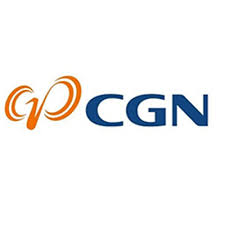Part 2 of 2 Parts (Please read Part 1 first)
EDF’s board will hold a meeting in November to discuss moving forward with the Sizewell C project but is understandably cautious about spending tens of millions of dollars on the project without a firm commitment of additional funding from the U.K. government.
EDF has been lobbying intensively for an RAB funding mechanism. They argue that such an arrangement could seriously reduce the “strike price.” This is the guaranteed price for electricity from the Sizewell C plant. Currently the estimated cost of electricity from Sizewell C would be between forty dollars and eighty dollars per megawatt hour. The strike price set for electricity generated by the Hinkley C nuclear power plant is one hundred and twenty-seven dollars per megawatt hour. At a time when offshore wind power costs are rapidly falling, the Hinkley strike price has been criticized as excessive.
Seven of the eight existing nuclear power plants in the U.K. are scheduled to be closed by the end of this decade. Nuclear power supplies about twenty percent of U.K. electricity. This will result in a big gap in low-carbon power generation in the U.K.
The global gas crunch and soaring energy bills have increased the pressure on U.K. ministers to take decisive action. Ministers are eager to announce a deal on
Sizewell C next month, ahead of the Cop26 Climate summit in Glasgow, Scotland. Kwasi Kwarteng is the U.K. Business Secretary. He has been pushing the U.K. Treasury for a big chunk of spending on nuclear power in the October 27 spending review.
Removing China from the Sizewell C project would effectively destroy the 2015 deal with CGN under which it agreed to fund Hinkley and Sizewell projects. Part of the deal was an agreement that CGN would be allowed to install its own reactors at a third site at Bradwell in Essex. The chances of CGN getting approval to build any of its reactors anywhere in the U.K. are now seen as slender. That particular arrangement was considered to be the pinnacle of the “golden era” between the U.K. and China.
Pressure to remove China from the U.K. reactor projects has increased under the Biden administration. The U.S. construction giant Bechtel is teaming up with Westinghouse which is the U.S. nuclear technology company owned by Canada’s Brookfield to promote another nuclear power station in the U.K. at Wylfa on Anglesey.
In their pitch to the U.K. government, Bechtel and Westinghouse said that this project would strengthen the “special relationship.” They said, “Through a successful partnership at Wylfa, the UK and US will share a common interest in promoting the use of this secure, reliable technology in new markets to compete against state-backed Russian and Chinese options.”
Stephen Thomas is a professor of energy policy at Greenwich University. He said, “CGN’s motivation in supporting the Hinkley Point and Sizewell projects was to secure a chance to build its own reactor design at Bradwell. With Bradwell now off the table it’s unlikely they would be interested in the Sizewell investment. CGN may still persist with approving its reactor design with the U.K. authorities to secure that gold standard accreditation, but this is where its UK nuclear ambitions are likely to end.”
